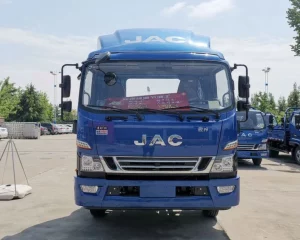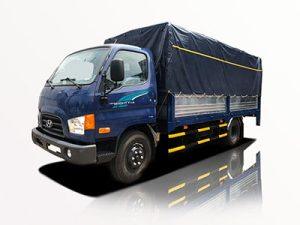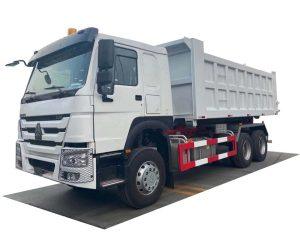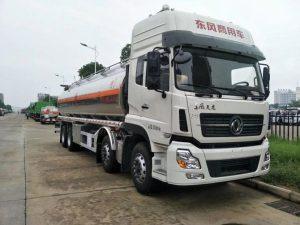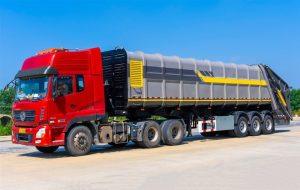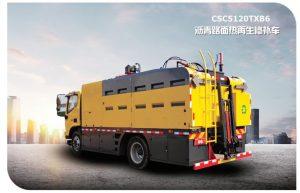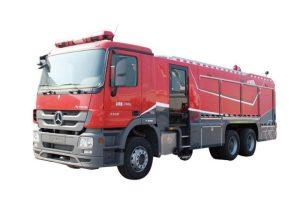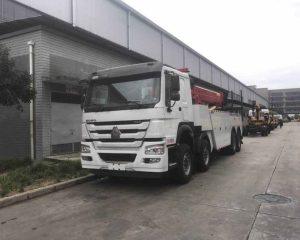Monday to Saturday - 8:00 -17:30
Understanding Trailer Tow Trucks: Everything You Need to Know
Trailer tow trucks are essential vehicles designed to carry and transport trailers safely. Whether you’re moving goods, hauling vehicles, or transporting equipment, understanding the intricacies of trailer tow trucks can make all the difference in ensuring a smooth process. In this article, we will explore various aspects of trailer tow trucks, including their types, features, and essential maintenance tips.
What is a Trailer Tow Truck?
A trailer tow truck is a specialized vehicle that is designed to tow trailers of varying sizes and weights. These trucks are equipped with powerful engines and reliable towing equipment, ensuring that they can handle heavy loads without compromising safety. Whether used for commercial purposes or personal use, trailer tow trucks play a crucial role in logistics and transportation industries.
Types of Trailer Tow Trucks
1. Light-Duty Tow Trucks
Light-duty tow trucks are designed to tow smaller trailers, such as utility trailers and car trailers. They typically have a towing capacity of up to 10,000 pounds and are commonly used for personal purposes.
2. Medium-Duty Tow Trucks
Medium-duty tow trucks are versatile vehicles that can handle a range of trailer sizes. With a towing capacity ranging from 10,000 to 26,000 pounds, these trucks are ideal for businesses that need to transport equipment and larger trailers.
3. Heavy-Duty Tow Trucks
Heavy-duty tow trucks are built for maximum strength and can tow trailers exceeding 26,000 pounds. These trucks are often used in commercial settings, such as construction sites and long-haul logistics.
4. Integrated Tow Trucks
Integrated tow trucks feature an integrated towing system, combining a powerful chassis with built-in tow mechanisms. This design ensures better maneuverability and stability when towing large trailers.
Basic Components of a Trailer Tow Truck
| Component | Description |
|---|---|
| Towing Hitch | Connects the trailer to the tow truck and is critical for weight distribution. |
| Engine | Powers the tow truck, contributing to its overall towing capacity. |
| Chassis | The frame of the tow truck that provides support and stability. |
| Braking System | Ensures that both the truck and trailer can stop effectively. |
| Electrical System | Connects the lighting and braking systems of the trailer to the tow truck. |
Factors to Consider When Choosing a Trailer Tow Truck
1. Towing Capacity
Understanding the towing capacity is crucial. Ensure the truck can handle the weight of the trailer and its load. Overloading can lead to accidents and damage to the truck.
2. Engine Performance
A powerful engine is necessary for efficient towing. Look for trucks with robust engines that provide ample horsepower and torque.
3. Trailer Compatibility
Different trailers have varying requirements. Ensure your tow truck is compatible with the type of trailer you plan to haul. Consider factors like towing hitch types, weight distribution systems, and braking requirements.
4. Fuel Efficiency
Towing can consume significant fuel. Choose a truck that balances power and fuel efficiency to save costs in the long run, especially if you plan to do a lot of towing.
5. Safety Features
Safety should always be a priority. Look for tow trucks equipped with advanced safety features like anti-lock braking systems, trailer sway control, and backup cameras.
Essential Maintenance Tips for Trailer Tow Trucks
1. Regular Inspections
Perform regular inspections of key components such as the engine, brakes, tires, and electrical systems. Check for wear and tear early to avoid major issues.
2. Tire Maintenance
Check tire pressure regularly, and inspect for uneven wear. Properly inflated tires improve towing efficiency and safety.
3. Engine Care
Follow a routine schedule for oil changes and filter replacements. A well-maintained engine ensures better performance and longevity.
4. Brake System Checks
The braking system is crucial when towing. Ensure it functions efficiently by checking and replacing brake pads and fluids as needed.
5. Clean Electrical Connections
Corroded or dirty electrical connections can lead to lighting issues. Regularly clean and inspect connections to maintain optimal trailer lighting.
How to Safely Tow a Trailer
1. Know Your Limits
Stay within the tow truck’s towing capacity. Understand how much weight the truck can handle based on manufacturer specifications.
2. Load the Trailer Correctly
Distribute the trailer’s load evenly. A well-balanced load reduces swaying and improves stability. Position heavier items over the axles for better weight distribution.
3. Use Proper Equipment
Ensure that you have the right towing equipment, including the appropriate hitch and safety chains. Using high-quality equipment is essential for safe towing.
4. Check Lights and Brakes
Before hitting the road, test the trailer’s lights and brakes to ensure they are working correctly. Proper signaling is critical for safety on the road.
5. Drive Cautiously
When towing a trailer, drive defensively. Allow for increased stopping distances and avoid sudden lane changes or sharp turns.
Common Uses of Trailer Tow Trucks
1. Vehicle Transport
Many businesses use trailer tow trucks to transport vehicles. Whether it’s for car dealerships or transport services, these trucks are invaluable for moving cars between locations.
2. Equipment Hauling
Construction companies often rely on trailer tow trucks to transport heavy equipment to job sites. These trucks provide the necessary strength to move bulldozers, backhoes, and other machinery.
3. Recreational Use
Individuals using boats, RVs, or large campers often use tow trucks to take them to their favorite vacation spots.
4. Transportation of Goods
Businesses frequently use trailer tow trucks to transport goods across distances, making them essential for logistics and supply chains.
Cost Considerations for Trailer Tow Trucks
1. Initial Investment
The cost of a trailer tow truck varies widely based on its type, features, and brand. Light-duty trucks can range from $25,000 to $40,000, while heavy-duty trucks can exceed $100,000.
2. Maintenance Costs
Annual maintenance costs should also be considered. Regular service and repairs, fuel costs, and tire replacements can add up over time, so it is essential to budget accordingly.
3. Insurance and Licensing
Insurance costs vary based on use and value. It’s important to ensure that your tow truck is adequately insured. Additionally, considering licensing costs and regulations is crucial for commercial operations.
Frequently Asked Questions (FAQ)
1. What is the towing capacity of a trailer tow truck?
The towing capacity depends on the truck’s type and specifications, ranging from about 5,000 to over 30,000 pounds.
2. How do I choose the right trailer for my tow truck?
Consider the weight, size, and purpose of the trailer. Ensure it is within the tow truck’s towing capacity and is compatible with the hitch type.
3. What maintenance is essential for my trailer tow truck?
Regular inspections of brakes, tires, engine oil, and electrical systems are essential to ensure safe and efficient operation.
4. Can I tow more than one trailer with a tow truck?
Most tow trucks can only tow one trailer at a time. However, specific configurations allow multiple trailers under certain conditions and regulations.
5. Is insurance mandatory for a trailer tow truck?
Yes, insurance is typically mandatory for both personal and commercial towing operations to ensure liability coverage.
6. How can I improve fuel efficiency when towing?
To maximize fuel efficiency when towing, ensure your load is properly balanced, maintain optimal tire pressure, and avoid excessive speeds.


